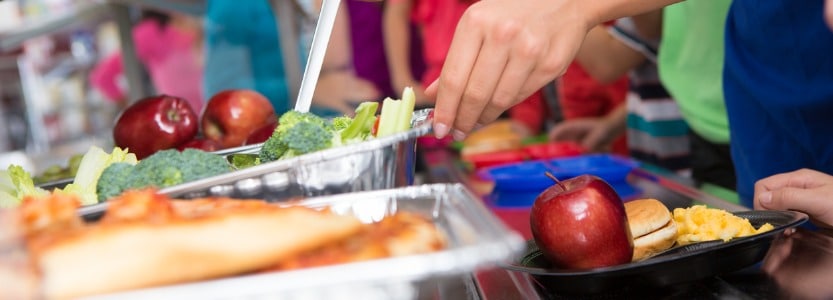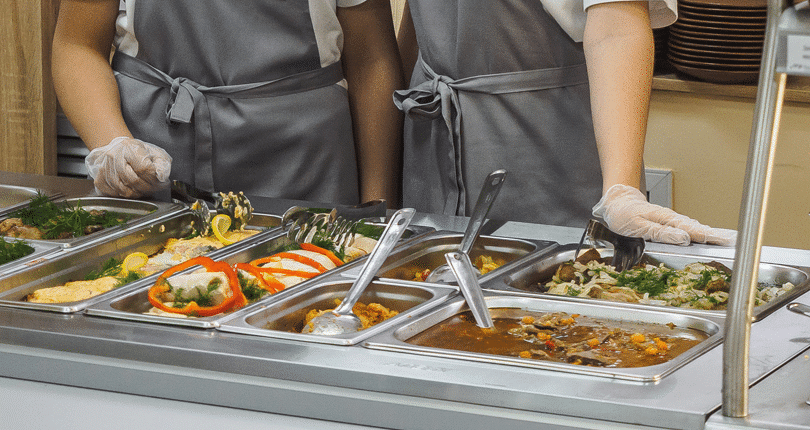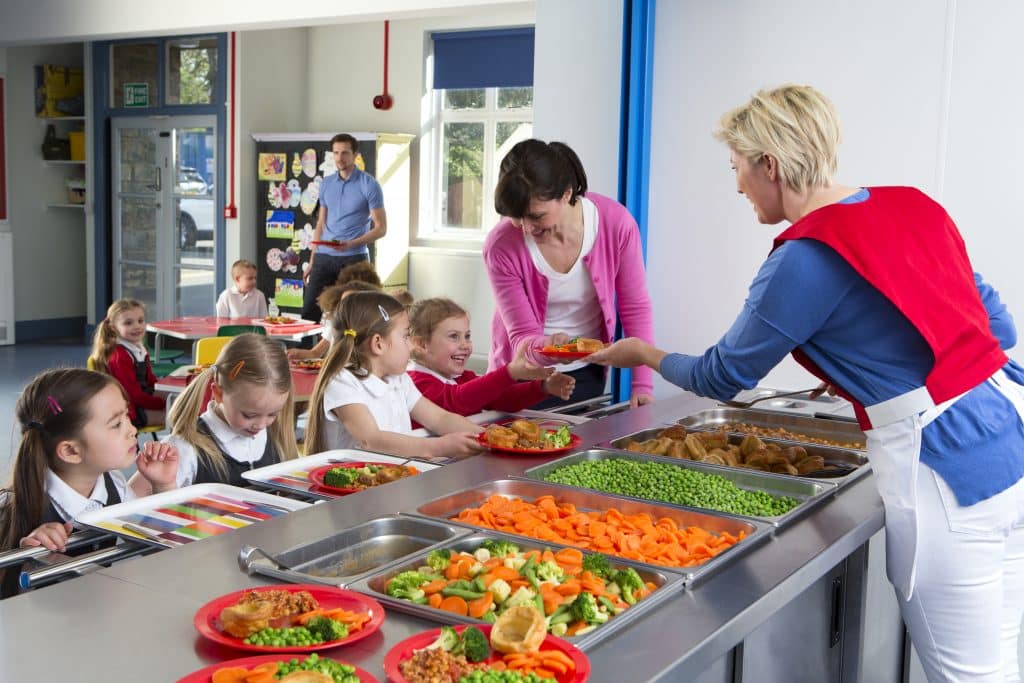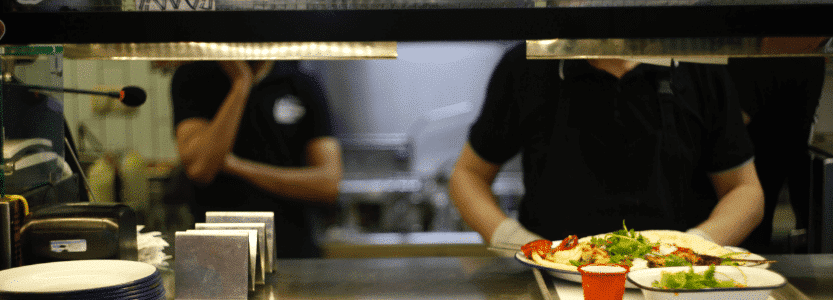How to reduce canteen chaos in schools
Updated 6th April 2023 | 6 min read Published 3rd November 2022

It’s well worth serving up a great canteen experience, not least because well-fed students are happier and better set up to learn.
However, school canteens are a busy, noisy hive of activity; with the lack of structure around lunchtime, pupil issues can escalate quickly.
Here we explore the five main pain points that exist and how schools can use technology to minimise the impact.
1) Look at that queue!
Lunch breaks are cherished by most pupils, offering an opportunity to let their hair down.
The last thing students want to do is spend time standing in a long queue – if they are made to do so, behaviour can deteriorate quickly.
A simple way to reduce queue chaos is by moving to cashless catering, where meal payments are taken care of separately, and students simply scan a biometric or smart card to authenticate their payment.
With cashless catering, the fumbling around to pay that often holds up transactions is eliminated, queues are sped up and overall waiting times are reduced.
2) Tracking who eats
In recent years, eating disorders amongst young people has been on the rise, with the NHS stating that they’re treating a record number of children.
The school canteen can be an overwhelming experience for some students – it’s clear that something has to be done.
Warning signs to look out for, as stated by the NHS Associate Clinical Director for Children and Young People’s Mental Health, include:
- A pupil making rules about what they eat
- Somone restricting the range of food they eat
- Comments that suggest a negative body-image
All these factors need consideration, but what can be done in the canteen? By using a cashless catering system, you’re able to track canteen usage by pupils and spot early signs of who is eating and who isn’t.
3) Careful, don’t eat that!
Safeguarding children from allergens is high on the agenda for schools at lunchtime.
By inputting allergies and dietary requirements for each at-risk pupil into a digital system, it automatically identifies when a student tries to order a meal that could be potentially harmful.
To further safeguard at-risk pupils, they can make meal selections in advance, or parents can make meal choices from home.
More content: we cover this topic in more detail here – Why cashless catering can help to keep allergic children safe
4) Money-related incidents
Many children are given lunch money, but this money doesn’t always reach the school canteen.
It might get lost, spent on other things, given away, shared amongst friends or it could be taken away from the child against their will.
In fact, a study from Alliance Against Crime found that cash is one of the most commonly stolen items in schools.
Students who carry cash daily are at more risk from theft, whether cash is taken via a physical confrontation or swiped in the changing room.
With cashless catering, this issue is virtually eliminated, as there is no expectation that a child under threat will be carrying money for the taking.
5) Free school meals
Unfortunately, a stigma remains surrounding children in receipt of free school meals (FSM); anything publicly flagging a child as having an FSM status risks potential discrimination.
Students who access FSM in schools that use cash become easily distinguishable, even if a sensitive system is put in place.
By operating in cash, some FSM students may decide to go without their lunchtime meal to avoid social ridicule.
But with cashless catering systems, it is indistinguishable whether a student is on FSM or not, meaning those entitled are more likely to use the school canteen.
More content: we covered this issue further here – Children Reject Free School Meals Because of Stigma
School canteen efficiency
A school canteen is a service schools have to run, but often, it becomes a bigger drain on resources than needed.
With cashless catering systems, pre-ordering and end-of-day reporting give kitchen staff all the statistics, tools and evidence they need to be efficient and improve stock management, cutting costs and reducing waste.
Schools can eradicate many of the problems canteens face, turning the space from a source of issues to a positive environment that points towards healthy habits, inclusive experiences and increased focus in afternoon classes.
Click here to find out more about IRIS BioStore Portal for primary schools or IRIS FasTrak for secondary schools.





